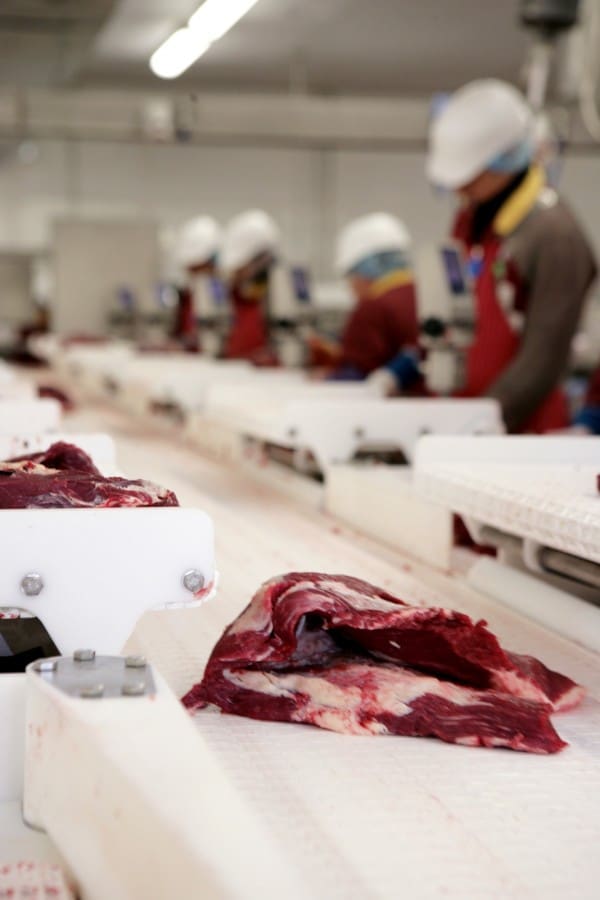THE Australian Meat Industry Council has raised concerns for regional employers and communities following the pledge given by Opposition leader Bill Shorten yesterday to increase the pay of overseas workers by $11,000 annually.
“The Australian red meat industry is one of the largest employers in regional Australia and it has been struggling for some time to find local Australian workers to fill vacant positions, particularly among young workers and the long-term unemployed,” AMIC chief executive Patrick Hutchinson said.
 “Right now, there are more than 3780 vacant job positions across Australian meat processing plants. These businesses would prefer to fill those vacancies with local workers, yet despite considerable advertising, pre-training and structured training programs with RTOs, this hasn’t been possible,” he said.
“Right now, there are more than 3780 vacant job positions across Australian meat processing plants. These businesses would prefer to fill those vacancies with local workers, yet despite considerable advertising, pre-training and structured training programs with RTOs, this hasn’t been possible,” he said.
“Indeed, in the past year, 73 processing plants advertised for almost 6500 new workers, which were filled by approximately 4600 local Australian workers. However, this has failed to fill or even maintain job vacancies at lower levels, particularly as Australian local workers stay an average between one week and six months in the job,” Mr Hutchinson said.
Currently, out of necessity, overseas employees accounted on average for 3pc of red meat processors full-time skilled employees, and 17pc of casual workers. Despite this, more than 60pc of processing plants were running below capacity.
“Mr Shorten’s announcement will only negatively impact capacity further, particularly as a pay increase to employees under the skilled migration scheme will add tens of millions of dollars to the red meat industry’s wage bill,” Mr Hutchinson said.
“Clearly, this is too much for an industry to bear that is suffering the burden of continuing drought conditions, unreasonably high electricity prices and excessive government red tape costs.”
Overseas skilled employees under the current targeted scheme have gone some way towards filling vacancies and enabling processing plants to lift production and double shifts, which in turn has helped to create more job opportunities for Australians within the red meat industry and other related regional industries.
Many of the skilled employees transitioned to become permanent residents and remain in regional communities, Mr Hutchinson said.
Drug and alcohol problems
“As the main employers in many regional and rural areas, red meat processors have become increasingly concerned about the adverse impact illicit drugs and alcohol are having on the local workforce, communities and families. Worryingly, AMIC’s members report that, on average, 20pc of jobs applicants fail to turn up to mandatory drug testing and a significant number fail the tests.”
“As a result, AMIC calls on both sides of the government to set up a bipartisan taskforce to join with large regional employers and care organisations to deal with the impact of illicit drug and alcohol problems in regional Australia and determine pathways for positive employment outcomes.
“The key to Australia’s regional growth is to attract workers and have them stay permanently in the bush, so they can join and rebuild declining communities and add to economic growth of these regions, reducing the widening divide between over-populated cities and under-populated regional Australia.
Employment discussion paper
Next week, AMIC will be releasing an employment discussion paper to all sides of politics to encourage dialogue and agreement for a whole-of-government and industry approach to developing and encouraging a well-trained regional workforce that is able to support the post farmgate-to-plate red meat industry, so farmers will be able to continue to have their produce processed locally and sold here in Australia and overseas.
Currently, the red meat industry contributed more than $20 billion to the Australian economy and there was strong potential to lift this further if access to regional skilled workers is increased, Mr Hutchinson said.
Source: AMIC
